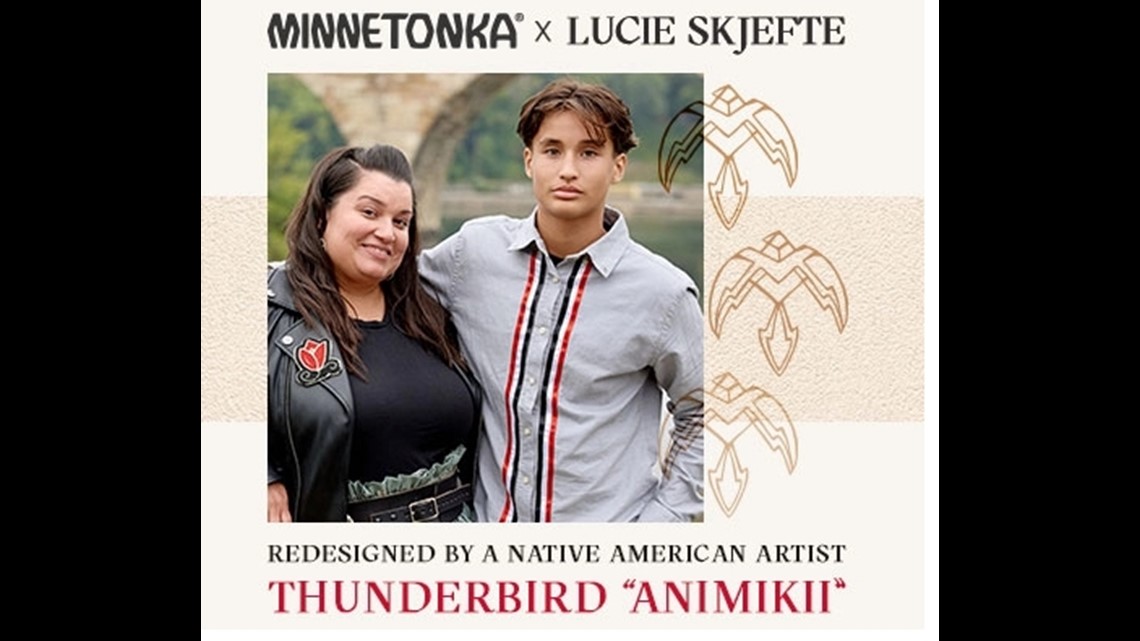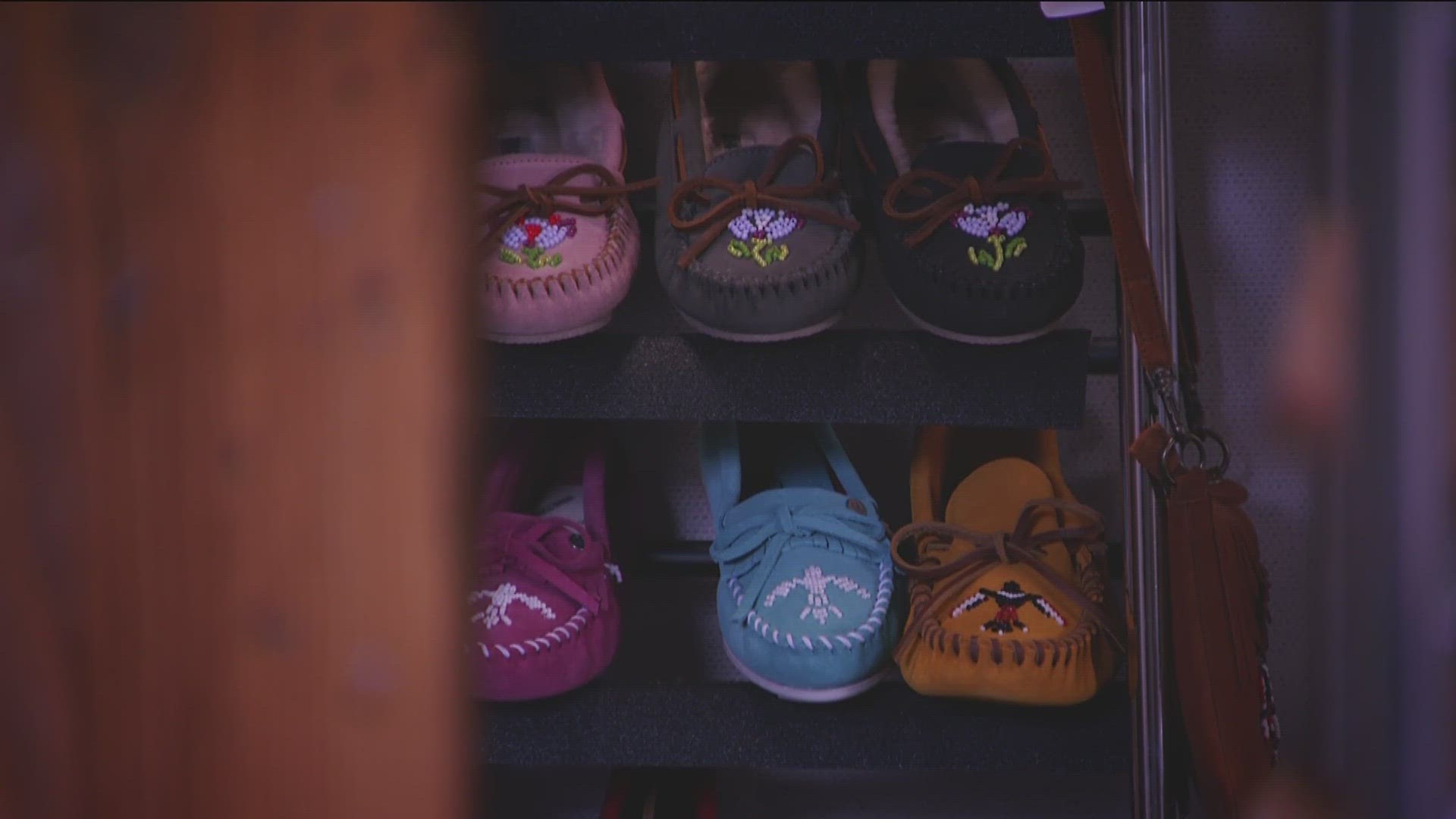MINNEAPOLIS, Minnesota — The Minnesota shoe company, Minnetonka is woven into the fabric of the community dating back to 1946. As the fourth generation of the family behind the shoes brings in fresh ideas, they're listening to consumers more than ever before.
"I am really grateful that we had a chance to learn, listen and understand more around what cultural appropriation is," Jorie Miller Sherer, Minnetonka's president, said.
Miller Sherer and her father, David Miller the company's CEO, began educating themselves on cultural appropriation years ago. Miller Sherer says the conversations became more of a focus in the fall of 2019. Following the civil unrest in Minneapolis after George Floyd's murder, Miller Sherer says the mission to reconcile with the indigenous community skyrocketed to their top priority in May 2020.
The first step: an apology posted to their website in the summer of 2020.
"It was very vulnerable to have that out there," Miller Sherer said. " My greatest feeling at the time was relief. We were very fortunate that we did this on our own time. We had the fortune to really learn and listen from people in the community before we talked about it publicly."
There was a general positive reaction at the time but their plan didn't end there.
Adrienne Benjamin was hired as a reconciliation advisor. Benjamin, an Anishinaabe artist and community activist, is a member of the Mille Lacs Band of Ojibwe. She has played an integral part of Minnetonka’s commitment planning.
"We know that we have appropriated and we are appropriating. It's about how we show up better," Miller Sherer said.
Showing up better includes building organic relationships with Indigenous designers, like Benjamin and Lucie Skjefte.
"When I started to see and understand the work they were doing around reconciliation, even approaching it first with an apology; that was impactful for us. Acknowledging that and standing in the accountability in that," Skjefte said.
The Anishinaabeg designer is a citizen of Red Lake Nation, the federally owned and fully sovereign Ojibwe tribe in Minnesota. She most recently crafted her own redesign of one of Minnetonka's most classic styles. It's called the Thunderbird Animikii. It pays homage to her Anishinaabe heritage and her son, whose name is Animikii. It translates to "Thunderbird" in Ojibwemowin. For many tribes, the Thunderbird is a revered supernatural being, playing a key role as protector, rainmaker, and enforcer of justice.


"I definitely see this as being a reclamation by our people and reconnecting and sharing our understanding of it and its intention and purpose," Skjefte said.
Miller Sherer says Skjefte's didn't just redesign the shoe, but she gave it a story. Skjefte owns the rights to the design, so for every pair of the Animikii Thunderbird purchased, a product lifetime royalty will be paid directly to her.
"Some of them [designers] have really connected to certain products we have. Some are designing new products. Some are designing materials to replace appropriated materials. This is really about building long-term relationships," Miller Sherer said.
Minnetonka is also donating to Mni Sota Fund – an urban Native CDFI selected by Skjefte that helps Indigenous people in Minnesota get training and capital for home ownership and entrepreneurship. It's one of the several Indigenous non-profits that Minnetonka donates to in effort to uplift and amplify their work.
Skjefte's first design with Minnetonka was inspired by nature. Her floral beaded designs in the Ziigwan Waabigwan Moc Collection sold out, so did the three more that followed.
"I do this work because we’re still here, and it's important to give time and space to showcase that," Skjefte said.
Watch more local news:
Watch the latest local news from the Twin Cities and across Minnesota in our YouTube playlist:

